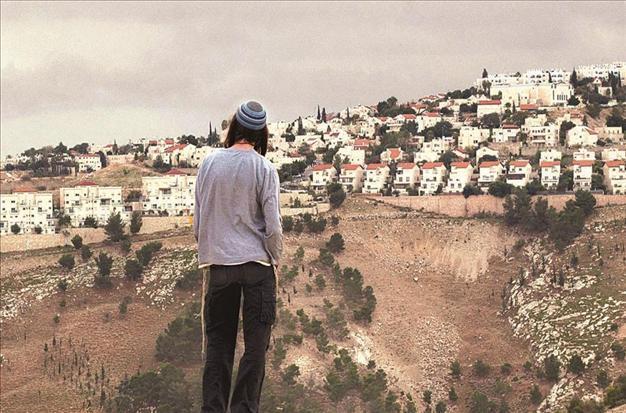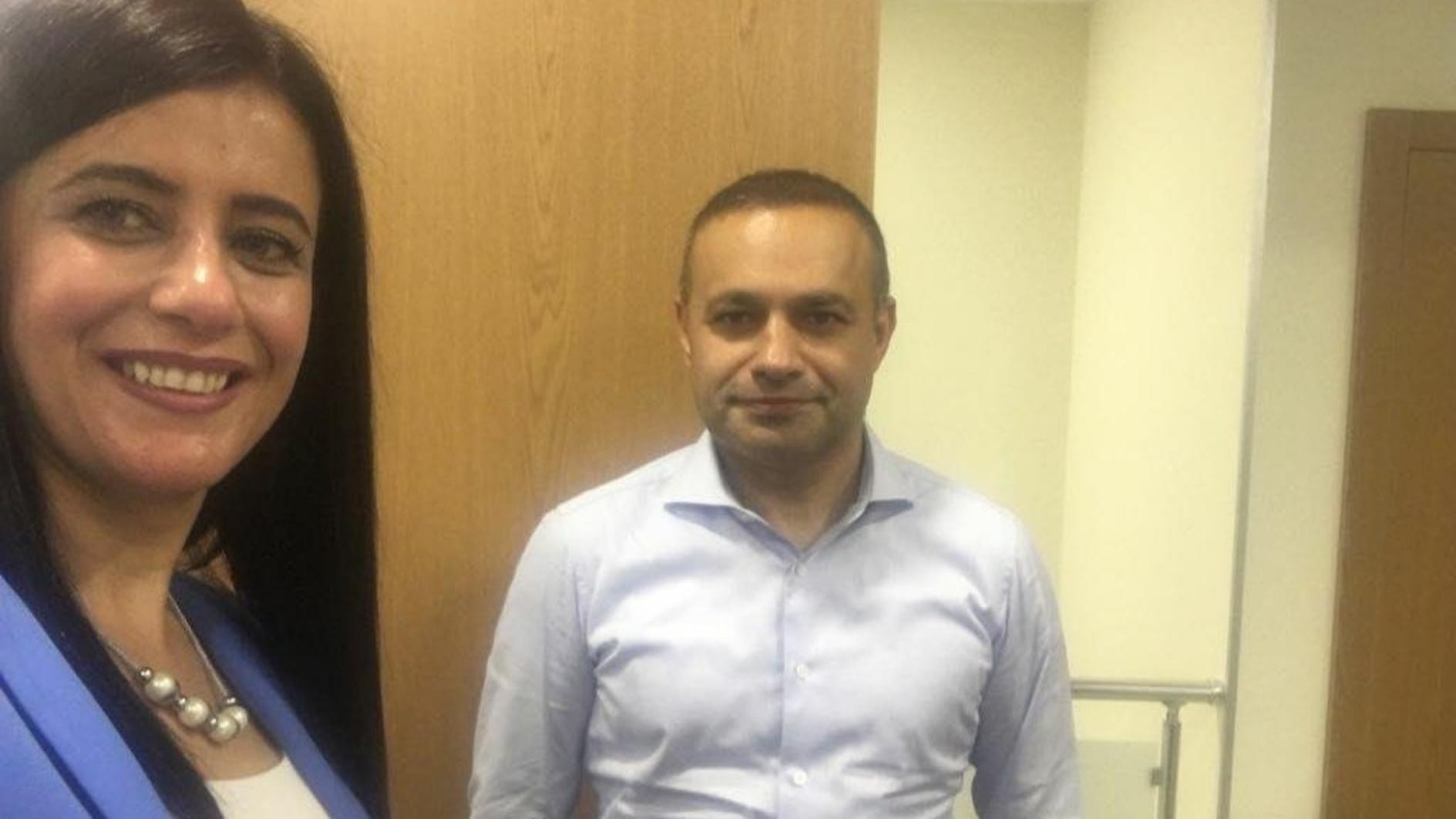Israel offers to leave settlements, military bases intact in West Bank
RAMALLAH – The Associated Press

A Jewish settler looks at the West bank settlement of Maaleh Adumim, from the E-1 area on the eastern outskirts of Jerusalem. REUTERS photo
Israel has proposed leaving intact dozens of Jewish settlements and military bases in the West Bank as part of a package to establish a Palestinian state in provisional borders, a Palestinian official told The Associated Press on Sept. 4, in the first detailed glimpse at recently relaunched peace talks.The official said the proposal is unacceptable to the Palestinians, underscoring the tough road ahead as the sides try to reach an agreement ending decades of conflict.
The official spoke on condition of anonymity because Israel and the Palestinians have pledged to U.S. Secretary of State John Kerry not to discuss the content of their talks with the media, a pledge that has largely held up until now. For their future state, the Palestinians seek the West Bank, east Jerusalem and Gaza Strip, territories captured by Israel in the 1967 Mideast war.
With Israeli Prime Minister Benjamin Netanyahu opposed to a return to the pre-1967 lines, the idea of a Palestinian state in temporary borders has gained appeal with the Israelis. Such a deal could give the Palestinians independence, while leaving the thorniest issues, such as the fate of Jerusalem and the status of millions of Palestinian refugees and their descendants, to later negotiations. The Palestinians reject any notion of a provisional agreement, fearing that a temporary arrangement that falls short of their dreams will become permanent.
The Palestinian official said formal talks on borders have not yet started, and that negotiations have focused on security matters. He said the Israelis want to retain control of the West Bank’s border with Jordan, keep early-warning stations on hilltops, and retain military bases near the Jordanian border.
“Israel is using the issue of security to take land,” he said. “From the general discussions we had in the last couple of weeks, the Israelis have shown no intention to dismantle any settlement.” He said the current proposals indicated that Israel would seek to retain control over about 40 percent of the West Bank.
“They said, ‘Let’s discuss a state with provisional borders.’ We said, ‘Let’s agree on a state based on the 1967 borders first, and then we can agree on having this state in phases.”
In the previous round of talks, conducted in 2008 under then-Prime Minister Ehud Olmert, Israel offered to withdraw from roughly 94 percent of the West Bank, and compensate the Palestinians with the equivalent of 6 percent through a “land swap” that would allow Israel to keep major settlements. Olmert also proposed international administration of Jerusalem’s holy sites.
The official said the Palestinians have proposed resuming peace talks from the point they broke off. Netanyahu has said he is not obligated to accept Olmert’s proposals.
A senior Israeli official refused comment on the Israeli proposal, citing the commitment to keep the talks secret. Netanyahu’s office declined comment, citing the pledge not to discuss the negotiations in public. Likewise, there was no immediate U.S. comment.
In a statement released for the Jewish new year holiday that began Wednesday evening, Netanyahu said he hoped the talks would succeed.
“We seek to advance peace with the Palestinians while maintaining our security and ensuring that the peace will be a real and enduring peace. Not a ceremony, not an agreement that we celebrate for two minutes and then collapse,” the statement said. Yasser Abed Rabbo, a top aide to Palestinian President Mahmoud Abbas, would not discuss the specifics of the talks. But speaking on the Voice of Palestine radio station, he said, “Until now, there are no signs of progress. The Israeli position has not changed. It’s the one that we know on the ground, through daily settlement expansion.”
















